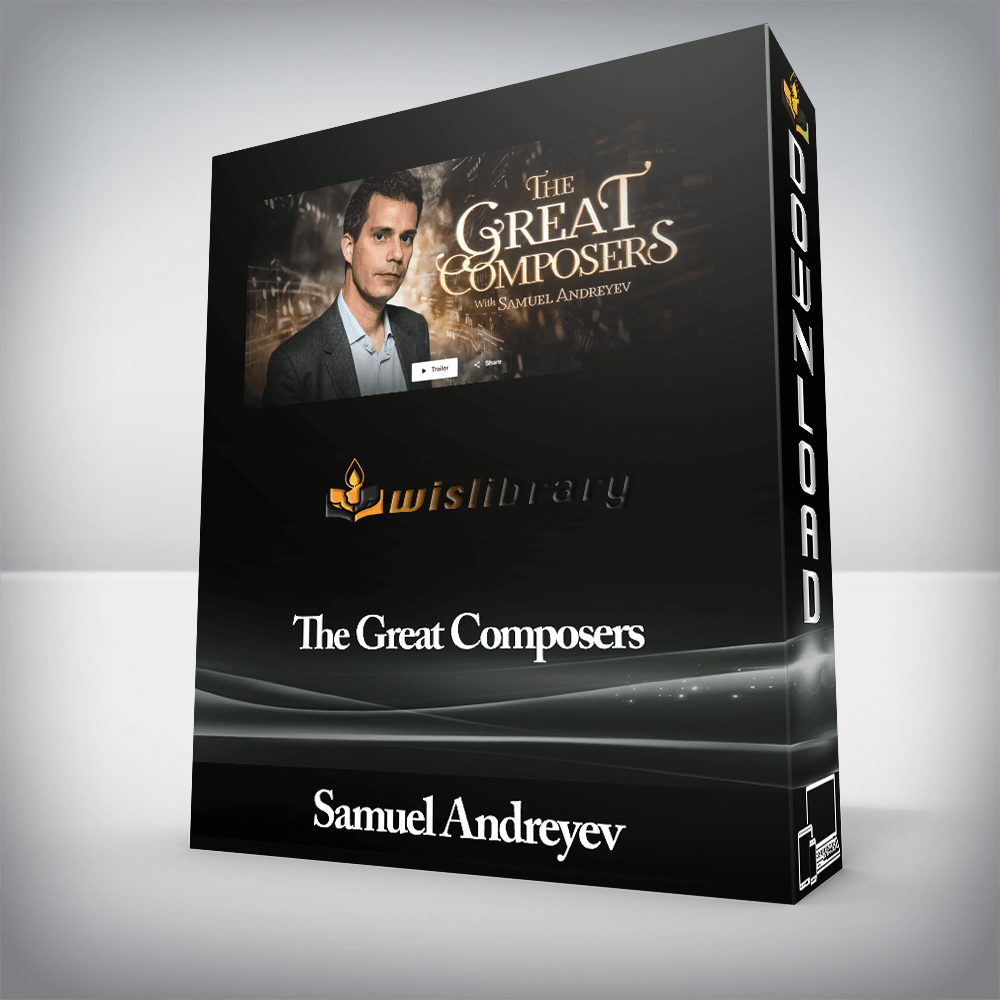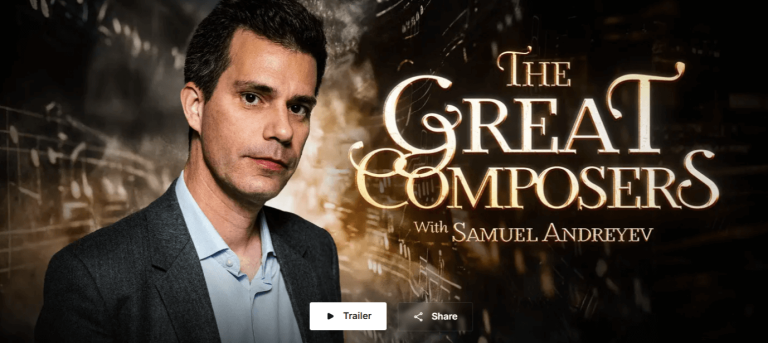

Composer
In The Great Composers, an eight-hour course, Samuel Andreyev embarks on a captivating journey through the lives and works of renowned classical composers, from Bach to Stravinsky. We explore their unique compositional styles, innovative techniques, personal circumstances, and the cultural contexts that shaped their music. The lectures highlight the composers’ significant contributions to the evolution of classical music, their influence on subsequent generations, and the enduring relevance of their works in the modern era. Throughout the course, we gain a deeper appreciation for the power of classical music to evoke emotion, challenge conventions, and reflect the human experience.




In lecture five we look at the life and work of Franz Schubert, focusing on his remarkable productivity despite his tragically short life. We examine his obsessive creative process, mastery of the German art song, and unique style, marked by extraordinary melodies and intimate expression. The lecture highlights Schubert’s deep connection between music and poetry, tracing his evolution from early serene works to darker late compositions, while discussing his prioritization of artistic pursuit over professional success.
In lecture six, we turn to the lives and musical contributions of two pivotal Romantic composers, Frédéric Chopin and Franz Liszt, examining their innovative approaches to piano composition and performance. The discussion highlights how these composers exploited advances in piano manufacturing to create virtuosic works. It also reflects their contrasting personalities and creative approaches, with Chopin favoring intimate salon performances and refined forms, while Liszt embraced showmanship and technically demanding pieces. Andreyev illustrates how both composers embodied the Romantic spirit through their forward-thinking techniques and expanded the possibilities of piano expression.
In lecture seven, Samuel Andreyev explores the tension between artistic necessity and external pressures through the life of Arnold Schoenberg, a controversial yet influential 20th-century composer. We trace his evolution from late Romantic traditions to pioneering atonality, reflecting cultural shifts in Vienna and challenging traditional harmony. The lecture examines how his innovative approach to composition, minimizing repetition and traditional harmonic structures, reshaped the relationship between artists and audiences.
In our eighth and final lecture, we culminate with the life and work of Igor Stravinsky, tracing his remarkable artistic evolution from late Romantic influences through various stylistic periods. The discussion focuses on his revolutionary compositions that expanded musical possibilities through original use of rhythm and orchestration. We highlight Stravinsky’s unique ability to achieve both artistic innovation and popular success. Finally, Samuel Andreyev concludes our course by examining the ongoing exploration of creativity in response to social and technological changes, while grounding the study in the timeless fundamentals of rhythm, pitch, and contrast.
There are no reviews yet.
You must be <a href="https://wislibrary.net/my-account/">logged in</a> to post a review.